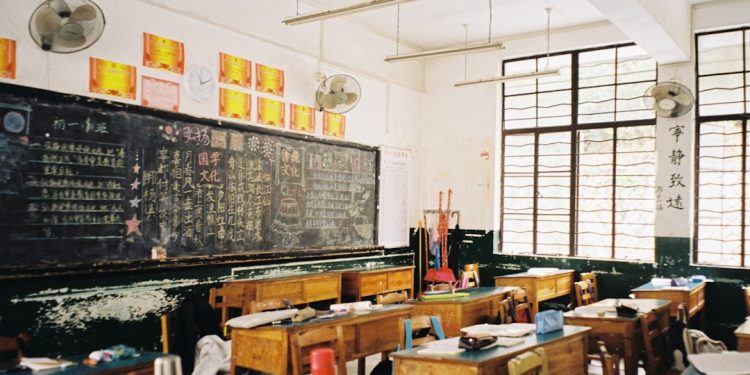No products in the cart.
Maharashtra Unveils New Faculty Recruitment Rules
Maharashtra has revised its faculty recruitment rules, impacting hiring processes significantly by cutting interview weightage to 25%.
Maharashtra, India — After a two-year hiatus, the Maharashtra government has announced new regulations for faculty recruitment across its universities. The latest guidelines significantly alter the hiring process, specifically by reducing the weightage of interviews to 25%. This change is expected to impact how universities select candidates and may influence the overall quality of education in the state.
The new rules were officially notified on October 5, 2025, marking a pivotal shift in the recruitment landscape for academic institutions in Maharashtra. The previous framework had maintained a higher emphasis on interview performance, which many stakeholders argued created inconsistencies and biases in hiring practices. By cutting the interview weightage, the government aims to establish a more standardized approach to recruitment, focusing more on candidates’ academic qualifications and teaching experience.

The reduction to 25% interview weightage aligns with a growing trend in educational policy where objective metrics are preferred over subjective assessments. Critics of the previous system pointed out that high-stakes interviews often favored candidates who were better at self-presentation rather than those with superior teaching capabilities or academic credentials. This shift is seen as a move towards a more equitable hiring process that could encourage a broader range of applicants.
 Child Development
Child DevelopmentYouTube’s AI Initiative: A Boost for India’s Creative Economy
YouTube's new AI tools aim to enhance India's creative economy by empowering content creators and educators, fostering innovation and growth.
The new recruitment guidelines also stipulate that candidates must have a minimum of 55% marks in their qualifying examinations, along with a Ph.D. for assistant professor positions. This requirement, while stringent, is intended to elevate the academic standards of faculty across Maharashtra’s higher education institutions. Additionally, universities are now required to publish their recruitment criteria transparently, ensuring that potential applicants are fully aware of the expectations and requirements.
The reduction to 25% interview weightage aligns with a growing trend in educational policy where objective metrics are preferred over subjective assessments.
Experts in educational policy have welcomed the changes, viewing them as a necessary evolution in faculty recruitment that can help to address systemic issues within the hiring process. Dr. Anjali Patil, an education consultant based in Mumbai, noted, “By focusing on measurable qualifications and experiences, Maharashtra is setting a precedent for other states to follow. This could lead to a more competent teaching workforce in the long run.”
However, the new rules are not without their detractors. Some educators fear that the reduced emphasis on interviews may overlook essential qualities such as interpersonal skills and the ability to engage effectively with students. “Teaching is not just about knowledge; it’s about connection,” argued Rajesh Kumar, a senior lecturer at a university in Pune. “While academic qualifications are crucial, we must also ensure that our faculty can inspire and motivate students.”
 Career Advice
Career AdviceFive Costly Career Mistakes and How to Avoid Them
Explore five career mistakes that can cost you significantly over the years, along with tips to prevent them and build…
Read More →Furthermore, the implementation of these guidelines may face challenges as universities adjust to the new standards. Institutions will need to invest in training for hiring committees to adapt to the revised criteria. This transition period could create disparities in how different universities interpret and apply the new rules, potentially leading to inconsistencies in faculty quality across the state.
Looking ahead, the Maharashtra government plans to monitor the impact of these changes closely. An evaluation framework is expected to be established within the next academic year to assess the effectiveness of the new recruitment process. This will include feedback from both faculty and students, providing valuable insights into whether the new approach is achieving its intended goals.
Some educators fear that the reduced emphasis on interviews may overlook essential qualities such as interpersonal skills and the ability to engage effectively with students.
As the landscape of higher education continues to evolve, the implications of Maharashtra’s new faculty recruitment rules may extend beyond its borders. Other states may look to this model as a blueprint for reforming their own hiring practices. The focus on objective qualifications over subjective assessments could lead to a nationwide shift in how educational institutions approach faculty recruitment, potentially enhancing the quality of education across India.
 Business And Entrepreneurship
Business And EntrepreneurshipIndia’s Startup Renaissance: Key Developments of September 2025
Explore the vibrancy of India's startup ecosystem in September 2025, highlighting key trends and developments that are shaping the future…
Read More →










